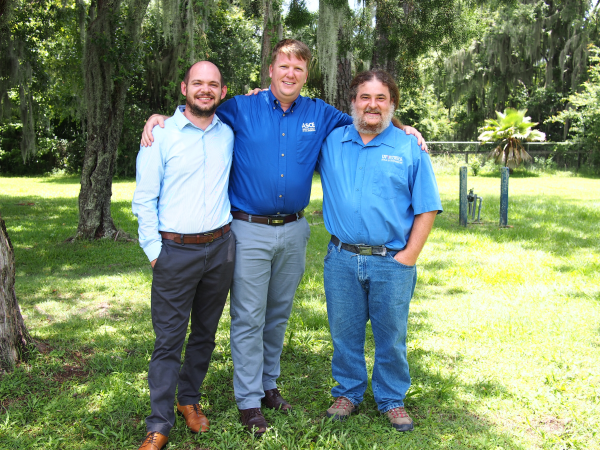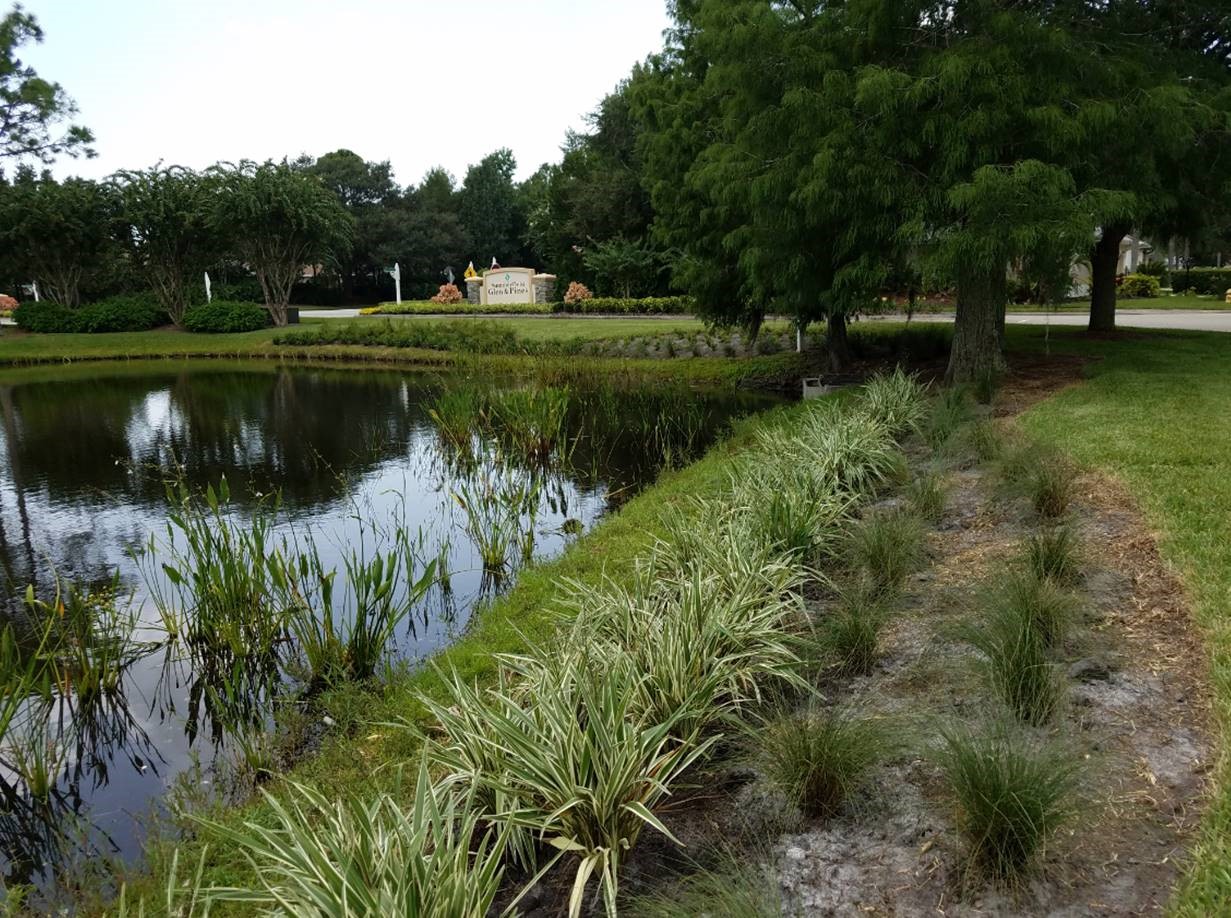Introduction to the Sustainable Human and Ecological Development group

Did you know that on average, approximately 1,000 people move to Florida each day? And that the state’s population is projected to be 34 million by 2070 (up from 18 million in 2010)? This expansion of the state’s population has multiple implications for natural resources throughout the state. In 2016-2017, we joined UF|IFAS with the goal of addressing environmental issues associated with expanding developments throughout the state. Together, we lead the Sustainable Human and Ecological Development (SHED) group. Our mission is to promote environmentally responsible design, construction, and management of developed landscapes via research and Extension. We use the different skills each of us bring to the group to identify issues, research potential solutions, and communicate our work to different stakeholders, including developers, government officials, green industry professionals, Home Owners Associations (HOAs), and individual homeowners.
Who are we?
SHED is a multidisciplinary group led by Drs. Eban Bean, Basil Iannone, and AJ Reisinger. Although we are each based in different UF|IFAS departments – Department of Agricultural and Biological Engineering, School of Forest Resources and Conservation, and Soil and Water Sciences Department, respectively – we all have offices together at the Program for Resource Efficient Communities, and are all faculty within the Center for Landscape Conservation and Ecology. All SHED faculty members are also State Extension Specialists. Furthermore, each faculty member leads an independent research group of technicians, postdoctoral fellows, graduate students, and undergraduate students focused on specific issues. Our groups closely collaborate on both research and extension opportunities. You can learn more about our research and extension projects at the SHED website.

Dr. Eban Bean leads the Urban Water Resources Engineering Lab. His lab focuses on developing solutions to urban water management issues. Eban’s lab uses a combination of monitoring instrumentation and modeling approaches to understand water movement across space and time within the urban and urbanizing landscape. The overall focus of his lab is to advance our understanding of hydrologic processes and use that understanding to increase conservation and limit impacts of stormwater runoff on receiving waters. The ultimate goal is to enhance functions of urban landscapes. This focus is of great importance as Florida’s population continues to grow, increasing pressure on limited water resources. Urbanization increases runoff, and legacy stormwater management infrastructure continues to contribute to impairment of urban waters, in Florida and around the country. The lab is currently 1) testing various treatments to accelerate soil formation within new residential development landscapes, 2) evaluating designs of green stormwater infrastructure practices, and 3) developing low-cost real-time water quality monitoring systems to improve data availability and watershed management for local governments and stakeholders. Eban’s lab focuses on generating applied solutions that can translate research and understanding through extension efforts to engineers, developers, landscape architects, regulators, and policy officials.
Dr. Basil Iannone’s Lab is called the Residential Landscape Ecology Lab. Basil uses his knowledge of urban ecology, biological invasions, spatial analysis, and ecological restoration to understand the ecology of residential landscapes. His lab’s goal is to quantify spatial ecological patterns and their causes and consequences in and around residential landscapes. The aims of this goal are to (1) increase the understanding of ecology in residential landscapes and (2) inform the design, construction, and management of residential landscapes that exhibit greater ecological functionality and reduce environmental degradation. This focus is important considering residential landscapes are the fastest growing land cover type in the US. Currently Basil studies the ecology of designer and engineered ecosystems, specifically ornamental gardens and stormwater ponds. Current projects investigate: (a) how structural complexity, biodiversity, and landscape context of ornamental gardens affect their resistance to arthropod pests, (b) the effects of stormwater ponds on the plant communities of nearby isolated wetlands and species movement, and (c) the effects of ornamental plantings in stormwater ponds on nutrient removal from stormwater runoff. Basil is also interested in the effects of landscaping plant species choice on the spread of invasive plants and how causes of ecological variability change across spatial scales.
Dr. A.J. Reisinger leads the Urban Ecosystem Ecology Lab. A.J. is an aquatic ecologist and has worked in a variety of landscapes, including pristine mountain streams in Utah, agricultural rivers in Indiana, and urban streams in Maryland. A.J. and his team study a variety of urban ecosystems to better understand how human activities affect soil and water quality, particularly focused on residential soil health, stormwater pond nutrient dynamics, and contaminants in urban streams. His research is focused on identifying physical, chemical, and biological processes that change nutrient export from urban environments to downstream water bodies. He translates this research into extension programs focused on alternative residential landscape management practices (for example, topdressing landscapes with compost) and opportunities to better manage urban stormwater to enhance nutrient removal processes.

Combining our skills and expertise to improve development practices in Florida
We combine our various backgrounds to gain a broader perspective of urban development and potential impacts on Florida’s natural resources. For example, we have a project measuring the impacts of ornamental plants along the banks of stormwater ponds. Eban provides expertise on the design and hydrology of stormwater ponds, Basil understands ecological community implications of using plants to restore these ponds, and A.J. quantifies water quality impacts in response to the plantings. We are also studying soil development in residential landscapes over time and what this means for soil-water relationships, soil-health, and the ecological community. In addition, we are developing collaborative extension projects and programs addressing different aspects of sustainable development, including field tours of low-impact development examples, programs addressing communication between different stakeholders, and opportunities to develop demonstration sites for various alternative management practices. Given our mutual interests and goals for promoting the environmentally responsible design, construction, and management of developed landscapes, we are constantly coming up with new research or Extension ideas for our programs. Although each of us have our own interests that go beyond the mission of the group, we know that we always have a home in SHED.
 0
0
